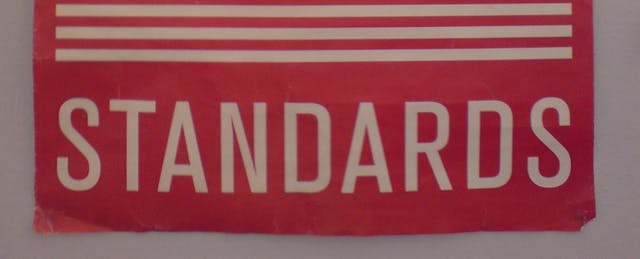COLLEGE BOARD ON COMMON CORE: Making our way around the various sessions at NSVF Summit 2013, EdSurge had the opportunity to listen in on David Coleman, President of the College Board, as he engaged a number of panelists on the pending Common Core transition. Coleman's theme was why "we can't wait" to put Common Core in place.
He solicited quite a few chuckles comparing Common Core detractors to picky daters bound to stay single forever. The panelists--educators and school supervisors--talked from the heart about why they felt that the standards would ultimately be better for students.
Even so, there was tension in the room. The elephant in the room was who carries the burden of responsibility in shepherding teachers to the promised land of Common Core.
In every shining example of how Common Core might transform the classroom, there was also evidence of a robust support system. Teachers weren't alone in attempting to decode the standards, design new content, seek professional development, and choose relevant assessments. For the vast majority of educators however, these four areas remain disjointed or missing entirely -- Common Core or not.
Sadly there was little in the way of where teachers should be looking for a national model of how to get started or transition into Common Core. Nor was there discussion of whether or not such use cases are readily accessible to the millions of teachers in the 45 states that took the leap into CCSS.
Last year, EdSurge spoke with Tony Alpert, COO of SmarterBalanced, who plainly stated that the company's explicit job is to create CCSS assessment items. And this past January at the DC EdTech Meetup, Dave Pinder, former DC Schools Principal of the Year, offered up “an arm and a leg for a PD tool that helps his teachers prepare for Common Core.”
Somewhere in between those two viewpoints is the stark reality that the onslaught of Common core will, as Alpha Public Schools' John Glover put it, "turn every educator into a first-year teacher." The naturals will likely find their way. And perhaps a large number of teachers will improve their instruction with ample preparation and professional development. But how many educators will flounder during an unsupported transition to the standards?
The panelists for the most part said as much-- even if they were more tactful in their approach. Here’s a collection of their Common Core wishes expressed at the session’s end:
John King, NY State Dept of Ed
- Curriculum tools and PD resources that support success against standards for most challenged learners: ELL, disabilities, overage/undercredited, most at risk, etc.;
- Resolve. Why wait on the perfect solution when the current solution is failing? In many underrepresented communities 'wait' means 'never.'
Brian Pick, DC Public Shools
- Everyone should read the standards front to back. No summaries or secondhand accounts. Develop a big picture view of the standards;
- Curriculum providers need to develop high quality content. That means rich, interactive texts for ELA standards and innovative problems and puzzles for Math.
Ashley Hebda, Indianapolis HS Teacher, TFA Alum
- Promote more awareness in the state and community that highlights Common Core benefits beyond political bantering;
- Create innovative ways to formatively assess students along the standards prior to a summative mastery assessment;
- Build a database of learning texts that indicates the appropriate level of rigor for a given ELA standard.
Finally, in the conference's closing session, Randi Weingarten reiterated her call for a "moratorium" on the consequences of testing students on Common Core standards--during next year.


